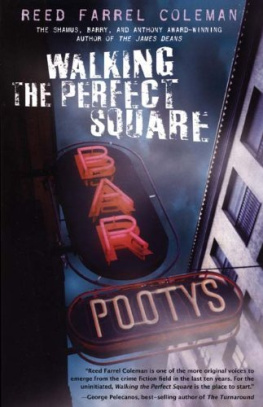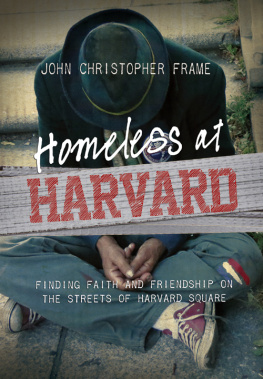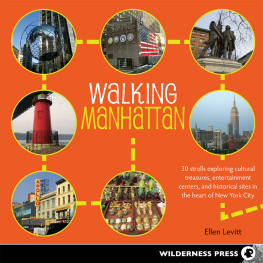Walking the Perfect Square
REED FARRELL Coleman
Raymond Chandler once advised that when things get slow in a story, have a man with a gun come through the door. What's most remarkable about Coleman's first mystery to feature Brooklyn PI Moe Praeger (after three Dylan Klein noirs: Little Easter, etc. ) is that he never resorts to such a crude device.
Rooted in the late 1970s, the story is so solid, the characters so compelling, the pace so expertly driven that he can dispense with the usual genre stitches.
If the one murder in the book occurs off-stage, there's no lack of suspense. The author makes us care about his characters and what happens to them, conveying a real sense of human absurdity and tragedy, of the price people will pay to get ahead or hide their true selves. Moe's job he's an ex-cop forced to retire because of a knee injury is to find the son of another cop, a young man who left a party one night and hasn't been seen since. So many people have been searching for Patrick Mahoney in the 20 years since his disappearance that Moe doesn't expect to be successful. As his investigation proceeds, he finds himself looking for two Patricks: one a choir boy lookalike and the other described by those who knew him as "weird" and "strange." But why? Is it possible Patrick's father really doesn't want to find his son? Patrick stands at the core of the novel, and the intricate tale of what happened to him makes for a first-rate mystery. Moe is a fine sleuth. Coleman is an excellent writer.
More Praise for Walking the Perfect Square "Walking the Perfect Square has perfect pitch in the key of NYC."
--Rocky Mountain News
"Coleman writes in a way that seems absolutely right. Interesting, honest and worth reading."
--The Mystery Review
"The author makes us care about his characters and what happens to them, conveying a real sense of human absurdity and tragedy ... a first-rate mystery.
Moe is a fine sleuth. Coleman is an excellent writer."
--Publishers Weekly (starred review) Reed Farrel Coleman was born and raised in Brooklyn, New York. He is the author of three Dylan Klein mystery novels: Little Easter, Life Goes Sleeping, and They Don't Play Stickball in Milwaukee. He resides with his family in Lake Grove, New York.
A PLUME BOOK
PLUME
Published by the Penguin Group tnn,A tic a Penguin Putnam Inc., 375 Hudson Street, New York, New York 10014, U.S.A.
Penguin Books Ltd, 80 Strand, London WC2R ORL, England Penguin Books Australia Ltd, 250 Camberwell Road, Camberwell, Victoria 3124, Australia Penguin Books Canada Ltd, 10 Alcom Avenue, Toronto, Ontario, Canada M4V 3B2
Penguin Books (N.Z.) Ltd, Cnr Rosedale and Airborne Roads, Albany, Auckland 1310, New Zealand Penguin Books Ltd, Registered Offices: Harmondsworth, Middlesex, England Published by Plume, a member of Penguin Putnam Inc. This is an authorized reprint of a hardcover edition published by The Permanent Press. For information address The Permanent Press, 4170 Noyac Road, Sag Harbor, New York 11963.
First Plume Printing, February 2003
10 987654321
Copyright Reed Farrel Coleman, 2001
All rights reserved
"Nobody Hurts You" written by Graham Parker. Copyright 1979 Ellisclan Ltd (PRS). Administered by Bug Music. All rights reserved. Used by permission.
For my big brothers, Jules and David Printed in the United States of America Without limiting the rights under copyright reserved above, no part of this publication may be reproduced, stored in or introduced into a retrieval system, or transmitted, in any form, or by any means (electronic, mechanical, photocopying, recording, or otherwise), without the prior written permission of both the copyright owner and the above publisher of this book.
PUBLISHER'S NOTE
This is a work of fiction. Names, characters, places, and incidents either are the products of the author's imagination or are used fictitiously, and any resemblance to actual persons, living or dead, business establishments, events, or locales is entirely coincidental.
Acknowledgments
I am grateful for the love and support of my wife, Rosanne, and my kids, Kaitlin and Dylan. I could not have written this book without the technical advice of Mitchell L. Schare, Ph.D., or my NYPD buddies: Billy Johnson, John Murphy, Jim Hegarty and Tom McDonald. I would also like to thank Ellen W. Schare for her editorial input.
To be is to be perceived --Berkeley
I hold a picture up
everybody thinks it's me
I get a thrill out of tampering with the atmosphere
Hey baby, I'm out of favor You can't always be
the right flavor
Just seems that no matter
what you do
Someone, somewhere
Someone's got to punish you
Nobody hurts you
harder than yourself
--Graham Parker
Hofstra University
Theater Department
Acting 2.1 Professor Stroock
Dramatic Monologue
The Lie of Wetness by Patrick M. Maloney Setting: Boardwalk. Nighttime. The sky--moonless, starless. Waves of an unseen ocean are heard crashing ashore. The solitary figure of a young man--his image illuminated by a lone, flickering streetlamp--leans over the sea air ravaged railing. Contemplating a final walk into the womb of the ocean, he speaks...
You know what it's like? (pause) I'll tell you. You ever been to one of those fancy amusement parks like Busch Gardens or Hershey Park? (cups his ear) Oh, you have. Then you'll know what I'm talking about. At these parks they have these huge flume rides. Now, I don't mean the little cute ones with the fake logs. I mean they have these really big ones. They go like ten stories straight up in the air, swoop around a curve and then come flying--(gestures with his hand) I mean flyin' down into a big basin of water. You know the ones I'm talking about? The boat slams (smacks fist into other palm) into this water and boom! This freakin' wall of water soaks everything and everybody for like hundreds of feet around. Well, it's like that. Not the ride, exactly, but the waiting on line.
So you're standing there waiting your turn as this big line snakes around (gestures S shape) and you're watching big boat after big boat go up that freakin' ramp and come splashing down. And there's like these signs everywhere: (points to wording on imaginary sign) "Be aware: You WILL get wet." It's not like you need those signs either, because everybody you see getting off the damn ride's so wet they could wring out their sunglasses and make a puddle. But see here, this is the point I'm trying to make about how it is; even though you watch everybody getting soaked and there's these signs that tell you you're gonna get soaked, you tell yourself that you're not gonna get wet. Nope, not you!
(thumps chest) Somehow, all of a sudden, you're fucking waterproof as Jesus in plastic slipcovers.
But then it's your turn. And you stick your foot into the boat and there's like six inches of standing water there and you're up to your ankles in it. Then it dawns on you: the signs weren't lying. And unlike Jesus, the water's gonna walk on you. So you look at the bald guy next to you and his toothless girlfriend or the mom and her frightened kids two rows up or the fat retarded guy in the tight T-shirt sitting alone behind you and you wonder how many other people getting on that ride with you told themselves the lie of wetness.
Well, that's my point, you see. It's like that; just like that. We don't come with slipcovers, so we lie to ourselves instead. Christ knows I wish we didn't have to, but we do.
I have to go now.
Direction: Young man moves slowly out of flickering light; his footsteps can be heard walking down wooden steps. When footsteps stop, flickering light snaps off.
August 6th, 1998
Things that happened on August 6th: In 1945, Colonel Paul Tibbets at the controls of a special B-29 named after his mom, Enola Gay, dropped the uranium bomb, Little Boy, on the city of Hiroshima--the bomb they dropped on Nagasaki, Fat Man, was a plutonium bomb, but since both killed Japanese pretty damned well, it's not a detail most people bother with and since the second bomb was dropped on August 9th that doesn't really count, not here, not for our purposes.
Next page






